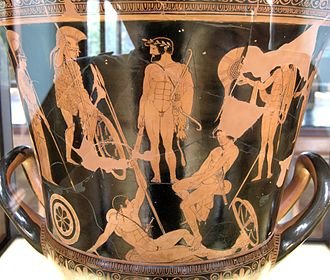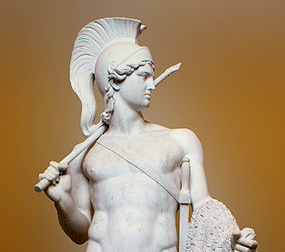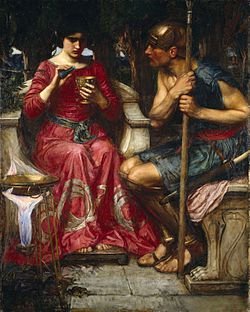Greek Gods and Goddesses that guided or obstructed the Journey of the Argonauts

The quest of the Argonauts, as detailed in various sources including the Argonautica by Apollonius of Rhodes, involved multiple interventions and interferences by Greek gods and goddesses. Image: Gathering of the Argonauts, Attic red-figure krater, 460–450 BC, Louvre (G 341).
In the myth of Jason and the Argonauts, gods and goddesses played pivotal roles, both aiding and obstructing their journey in pursuit of the Golden Fleece. Their involvement showcased the common Greek mythological theme of divine intervention in mortal affairs.
Here are some instances of how various Greek deities influenced the journey of the Argonauts:
Hera
Best known as the Queen of the Olympians, Greek goddess Hera was one of Jason’s primary divine supporters. After Jason showed kindness by helping an old woman (Hera in disguise) across a river, she took a special interest in his quest. Throughout the journey, Hera frequently intervened on Jason’s behalf, offering guidance and assistance.

Greek hero Jason
Athena
The goddess of wisdom and warfare played a crucial role at the outset of the journey by guiding the construction of the Argo, the ship used by the Argonauts. With her help, the ship incorporated a piece of the sacred Dodona oak that could speak and offer prophecies.
Aphrodite
The goddess of love played a key role by making Medea, the daughter of King Aeëtes of Colchis and a powerful sorceress, fall in love with Jason. This love would prove instrumental in helping Jason obtain the Golden Fleece.

Jason and Medea – as depicted by John William Waterhouse, 1907.
Eros (Cupid)
Eros, the god of love and son of Aphrodite, was the one who shot Medea with a love arrow, ensuring her immediate and intense infatuation with Jason.
Poseidon
As the god of the sea, Poseidon had a natural influence over a journey largely undertaken by ship. While he wasn’t overtly hostile, the challenges of the sea and the creatures within it could be traced back to him.

The Argonauts derived their name from their ship the Argos. Their name therefore means “Argos sailors”. | Image: The Argo, by Konstantinos Volanakis (1837–1907).
Apollo
When the Argonauts faced the dangers of the Symplegades, or Clashing Rocks, they released a dove as advised by Phineus. Watching the path of the dove, which was associated with Apollo, they navigated through the rocks safely.
Read More: Differences between Helios and Apollo
Ares
The god of war’s Isle was home to the Stymphalian Birds, which the Argonauts had to contend with. With the help of divine advice, they were able to drive the birds away.
Hecate
This goddess of witchcraft and magic was especially revered by Medea. Medea’s powerful sorcery, which she used several times to assist Jason, can be attributed to her devotion to Hecate.
Thetis and the Nereids
These sea nymphs, at the behest of Hera, helped the Argonauts navigate through the Wandering Rocks.
Zeus
As the king of the gods, Zeus played a more indirect role. He maintained the balance of favor and retribution, ensuring that while heroes received divine aid, they also faced challenges testing their mettle and worth.

Throughout the journey of the Argonauts, Greek goddess Hera provided guidance and also enlisted the help of other gods to assist Jason and his crewmates. Image: The Argo (c. 1500–1530), painting by Italian painter Lorenzo Costa
Read More: How did the hero Jason die?
Conclusion
Many other deities and mythological figures had roles or were invoked at various points during the journey. The involvement of gods and goddesses in the Argonauts’ adventure underscores the ancient Greek belief in the intimate involvement of the divine in mortal endeavors, as well as the capricious nature of the gods’ favor or wrath.




























